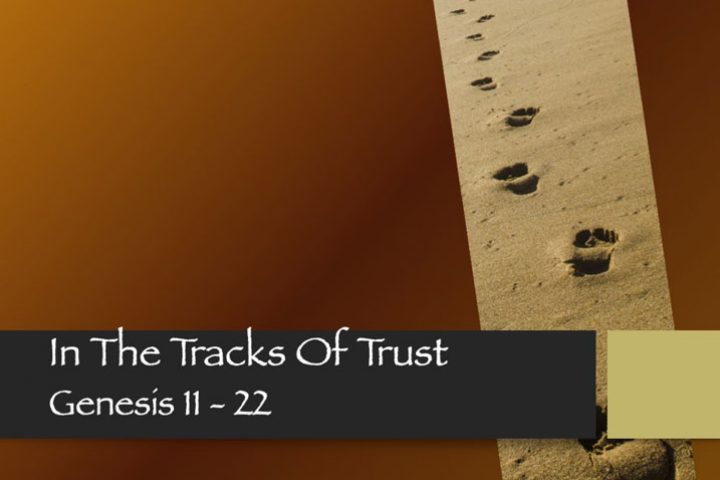Sermons by Shawn Reese (Page 7)
Friend of the Bridegroom
John 3:22-36
After that deeply theological conversation with Nicodemus, Jesus heads back into the Judean wilderness where John is baptizing. And, we hear John’s last speech in this Gospel. He joyfully says he is not the bridegroom; he is the friend of the bridegroom. Jesus, the one from above, is the bridegroom (implying he is God), while those who receive him become his bride (implying a new people of God). For John, as the friend of the bridegroom, his job was to connect the bride to the bridegroom. When he does his job, he can joyfully fade out of the picture, an attitude captured in his final statement, “He must increase, but I must decrease” (3:30). What if we were to live by that same attitude as well?
The New Birth
John 3:1-21
In this section of John, we are seeing that Jesus is making all things new. So far, we’ve seen the gathering of a new people of God, the miraculous new wine at a wedding and the promise of a new temple. In our text this week, we hear of the necessity for a new birth. Jesus meets one-on-one with a man named Nicodemus who comes to him by night. Nicodemus is very smart, very good and very religious. Yet, Jesus shatters his pride by saying that all of his smarts and all of his goodness and all of his religiosity mean nothing when speaking of abundant life and eternal life. “Nicodemus, you must have the new birth.” The same goes for you and me. But, how does this happen? John 3:16, “the Gospel in miniature,” explains it. “For God so loved the world, that he gave his only Son, that whoever believes in him should not perish but have eternal life.” So, how does this happen? You must believe in the Son, who was given by a God who loves you.
When Jesus is Invited
John 2:1-12
Up until this point in John’s gospel, Jesus has been mostly moving around privately, gathering his team of followers. This week, in chapter two, the curtains get drawn back, and God enters the public stage. And, where does he make himself known first? At a wedding celebration. So, what happens when Jesus is invited to a wedding (or into anything in life)? Come and see!
The First Followers
John 1:35-51
Last week we heard the witness of John the Baptist. This week, Jesus takes center spot as people begin following him. Jesus’ first words of the Gospel are to these followers, “What are you seeking?” It’s an inviting and searching question. If he were to ask you that today, how would you answer it? The first followers then respond with a question, “Where are you abiding Jesus?” It’s a way of saying, “If we come to you Jesus, what will we find?” And, in this text, Jesus makes two great promises to these first followers. Come and see what they are this Sunday.
Communion
At the end of Sunday’s live-streamed service we will again take communion “together”. I invite you to prepare elements ahead of time which represent the body and blood of Jesus. The elements do not need to be “special.” Please use whatever you have at home (no need for a special trip to the grocery store). Who may partake? All who give their allegiance to our Lord Jesus Christ and follow him. At the end of the service, please be ready to eat and drink with your families, as we partake as a church family.
The Witness
John 1:19-34
This Sunday we will continue our studies in the Gospel of John. After that magnificent prologue, we now enter into the story with the witness of John the Baptist. Throughout John’s Gospel, the concept of witness is very important. In fact one could read the entire Gospel through the “lens” of witness. Jesus is on trial, and many witnesses are called forward to testify to his nature, character, words and actions. By the end of the Gospel, we, the readers, will need to render our own verdict. Who is this Jesus? But, for now, let’s call the first witness. John the Baptist, please come forward and take the stand.
Invitation to Life
John 1:1-18
This Sunday we begin a new series in the Gospel of John. The title of this series is “Come and See.” The entire Gospel of John is an invitation to all of us to “come and see” who this Jesus really is. Come is the first word of command spoken by Jesus in John. He invites us to come, and in coming and encountering him, we will see (John 1:39). And, when we do, we will have – LIFE! Life abundant and life eternal! That’s the ultimate invitation from Jesus – an invitation to life! As Dietrich Bonhoeffer said, “Jesus calls people not to a new religion; but to life!”
We Beheld His Glory
John 1:19-34
“And the Word became flesh and dwelt among us, and we beheld his glory” (1:14). After writing the most astounding good news to ever be written “the Word became flesh,” why does John then say, “and we beheld his glory?” Why didn’t John say something like, “and we received the gift of eternal life?” Or, why didn’t John say something like, “and God and humanity were reconciled?” Why does John say, “and we beheld his glory?” Come Sunday as we conclude our Advent series discussing this important phrase in John’s prologue.
The Ultimate Discovery
Genesis 22
This week we come to the climax of the Abraham and Sarah story. In what has been called the most difficult passage in the entire Bible, we come to the binding of Isaac. Way back in chapter 12, God calls Abraham and Sarah to cut themselves off from their past. Here in chapter 22, God calls them to cut themselves off from the future. It’s a monstrous test from God to Abraham, one in which we struggle to find the words to understand. But, could it be that through this uncomfortable, even horrific test, we make the ultimate discovery about God?
Too Wonderful
Genesis 21
Do you live a life of wonder and amazement at God’s great gifts? Is anything too wonderful for the Lord? After a long 25-year wait, the promised baby finally arrives and, wonder of wonders, it’s a boy! Sarah responds in wonder and amazement at God’s great gift. However, not everyone is happy with the new baby. But even in the turmoil and conflict we discover another wonder-ful attribute of God – he hears all our prayers. Wonder upon wonder and every wonder true! Come this Sunday full of wonder at God’s great gifts, then share them during our time of body life.
Divine Deliverance
Genesis 19 Genesis 19:1-29
Last week we saw that God came down to investigate whether Sodom was indeed wicked. On his way to Sodom, he stopped to see Abraham and Sarah. And, we saw Abraham’s hospitality on full display. In chapter 19, the two angels arrive at Sodom, and they find the people of Sodom not very hospitable. In fact, they are very wicked and depraved. They are living by the motto: No one tells us how to live our lives. So, God judges them. However, within God’s judgment, we find deliverance. Lot is delivered for the sake of Abraham. The story ultimately reminds us today of our deliverance from sin, evil and death through Jesus Christ, who gave his life as a ransom for all (1 Timothy 2:6).
Hospitality to Angels Unawares
Genesis 18
After God’s promises to Abraham last week, we expect chapter 18 to be the birth of Isaac. But, it is not. Lot enters the picture again and will be the main focus of the next two chapters. (Remember he has moved into the wicked city of Sodom.) But God, in his great love and mercy, initiates contact again with Abraham and Sarah. They’ve done nothing to deserve all this attention. Yet, God continues to initiate. And, in this week’s text, he initiates contact disguised as strangers, even angels. How will Abraham and Sarah respond this time? Both of their responses become quite instructive for us. But, through it all, we continue to learn about God and his character.
What Marks Us?
Genesis 17
This week we return to the covenant. God had already entered into a covenant with Abram in chapter 15. Chapter 17 completes it. God wants Abram and Sarai to be active partners with him in his work. But, what does it look like to be an active partner with the living God? In other words, what marks us out who partner with him by faith? (Here’s one hint – this is baptism Sunday.) What is amazing is that this chapter stands alone in the Old Testament as containing five long and elaborate speeches by God himself.


